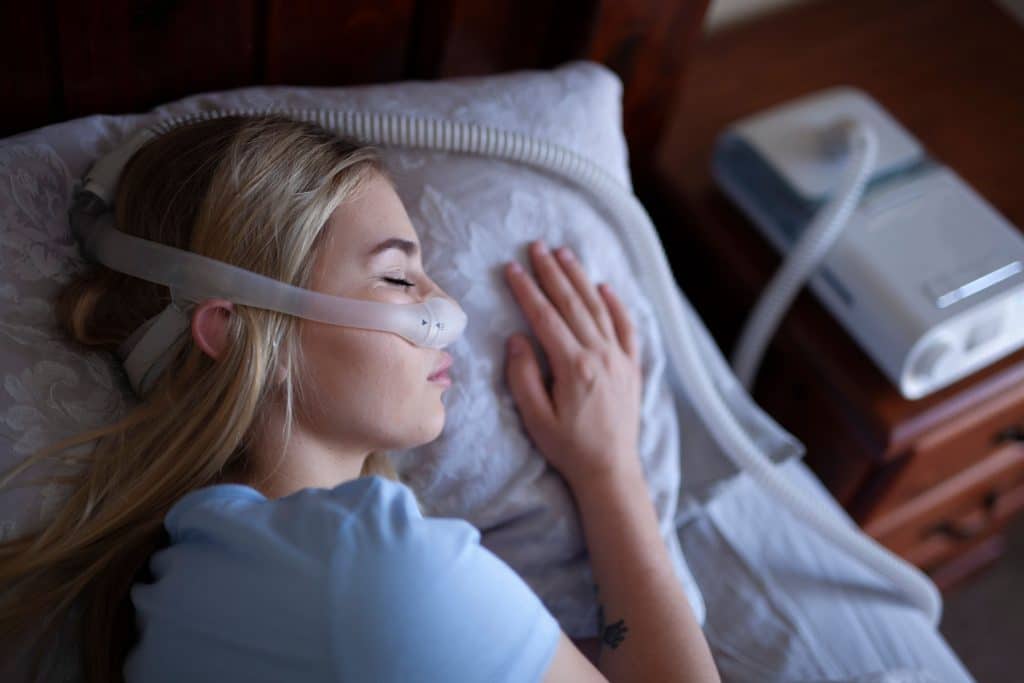The FDA has reported a staggering number of adverse events associated with the breakdown of the polyester-based polyurethane (PE-PUR) foam used in certain Philips Respironics CPAP, BiPAP, and ventilator machines, including hundreds of deaths. In recent years, CPAP (continuous positive airway pressure) machines have become increasingly common in treating sleep apnea and other respiratory conditions. These devices, including those manufactured by Philips, are designed to help individuals breathe more easily during sleep by providing a constant flow of air pressure. However, the potential for the foam in these devices to break down over time and expose users to a wide range of injuries, including cancer, represents a significant health concern, with reports of adverse events and deaths continuing to emerge.
Recalled Philips CPAP, BiPAP, and Ventilator Machines
CPAP machines are medical devices used primarily to treat obstructive sleep apnea (OSA), a condition characterized by interrupted breathing during sleep. These machines work by delivering a continuous stream of pressurized air through a mask, which helps to keep the airway open and prevent snoring and pauses in breathing. By ensuring a steady flow of oxygen, CPAP machines can significantly improve the quality of sleep and alleviate the symptoms associated with sleep apnea.
BiPAP (bilevel positive airway pressure) machines are similar to CPAP machines but unlike a CPAP, which delivers a continuous stream of air pressure, a BiPAP delivers two different pressure levels. Both CPAP and BiPAP machines manufactured by Philips have been recalled due to problems reportedly associated with the PE-PUR foam used in the machines to reduce sound and vibration, as have certain Philips ventilators, which are designed to provide full breathing assistance for patients who are unable to breathe independently.
Philips CPAP Recall Details
In June 2021, Philips, a leading manufacturer of medical devices, issued a voluntary recall for certain models of their CPAP machines, BiPAP machines, and ventilators. The recall was prompted by concerns over the breakdown of the PE-PUR foam used in these devices. The foam, which is intended to reduce sound and vibration, has been found to degrade over time, leading to the release of black foam particles and potentially harmful chemicals. These particles and chemicals can be inhaled or ingested by the user, posing serious health risks.
Adverse Event Reports and Patient Deaths
The FDA has received an alarming number of reports detailing adverse events associated with the breakdown of the PE-PUR foam in Philips CPAP machines. As of the latest update in January 2024, the agency has received over 116,000 Medical Device Reports (MDRs) related to this issue, 561 of which have been linked to patient deaths. These reports suggest a clear correlation between the foam breakdown and severe health consequences, underscoring the urgency of addressing this problem.
Health Risks Associated with PE-PUR Foam Breakdown
The breakdown of the PE-PUR foam in Philips CPAP, BiPAP, and ventilator machines can have serious implications for the health and well-being of users. When the foam degrades, it can release black particles and potentially harmful chemicals. Inhalation or ingestion of these particles and chemicals can lead to respiratory issues, lung irritation, and other adverse effects. Additionally, research indicates a possible link between PE-PUR foam breakdown and an increased risk of cancer. The long-term health implications of exposure to these substances are still being investigated, but the potential risks are cause for significant concern.
Identifying Recalled Devices and Next Steps
If you are using a Philips CPAP machine, it is crucial to determine whether your device is among those affected by the recall. Philips has provided resources to help users identify recalled devices and take appropriate action. To determine if your device is affected, locate the serial number on your CPAP machine and cross-reference it with the information provided by Philips. If your device is subject to the recall, it is important to consult with your healthcare provider to decide the best course of action. This may involve discontinuing use of the device, switching to an alternative treatment, or continuing to use the device while awaiting a replacement or repair.
FDA Actions and Philips’ Responsibilities
The FDA is actively monitoring the situation and working with Philips to address the concerns surrounding the foam breakdown in CPAP machines. The agency has conducted inspections of Philips’ manufacturing facilities and is reviewing the company’s responses to their inquiries. Philips, for its part, is required to take appropriate actions to mitigate the risks associated with the foam breakdown. This includes providing regular updates and information to affected users, facilitating the return and replacement of recalled devices, and conducting further investigations into the root causes of the issue.
It is important to note that Philips has issued additional recalls for some of their CPAP machines and ventilators that are unrelated to the foam breakdown issue. These separate recalls address different concerns, such as potential malfunctioning components or software vulnerabilities. Users should consult the FDA’s website and Philips’ official communications for accurate and up-to-date information regarding these recalls.
Reporting Health Issues and Concerns
If you experience any health issues or problems related to your Philips CPAP machine or any other medical device, it is crucial to report these concerns to the FDA. The agency relies on user reports to identify and address potential risks and to ensure the safety of medical devices. Reports can be submitted through the FDA’s MedWatch Voluntary Reporting Forms, which allows for the voluntary reporting of adverse events, product problems, and medication errors.
Philips CPAP Lawsuit Information
FDA, Problems Reported with Recalled Philips Ventilators, BiPAP Machines, and CPAP Machines
Laryngoscope, Cancer Risk Associated with Continuous Positive Airway Pressure: A National Study
Philips, Voluntary Recall Information

